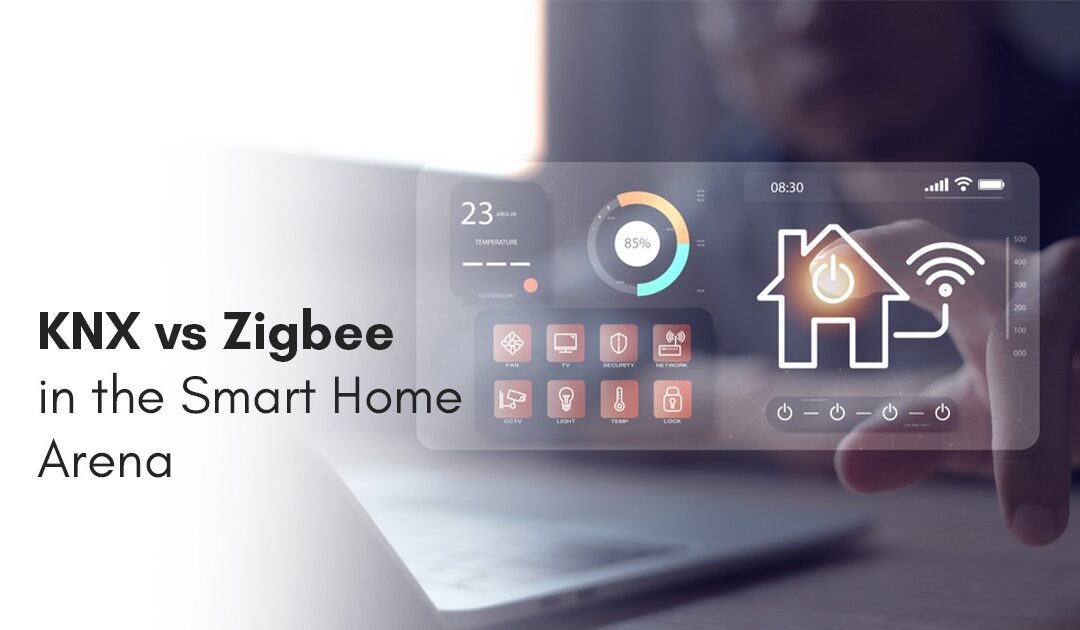The era of smart homes is here, bringing with it a convenient and controllable future. But it can be confusing to choose the best system because there are so many different technologies competing for market share. KNX and Zigbee are two well-known competitors, each with special advantages and things to consider.
Understanding the advantages of KNX:
- Rock-Solid Dependability: KNX’s wired architecture ensures reliable connectivity, which is essential for mission-critical applications like security or lighting management. KNX provides a stable and reliable automation experience and is less prone to interference from other wireless devices.
- Scalability for Growth: Future expansion is easily accommodated by KNX systems due to their excellent scalability. It is easy to add new devices or features by just connecting them to the current bus cable, which provides a system that is future-proof.
- Centralized Control: A central controller, which serves as the system’s brain, is usually the foundation of KNX systems. Comprehensive control over all linked devices and sophisticated automation scenarios are made possible by this centralized method.
- Interoperability and standardisation: KNX is an approved standard that guarantees product interoperability across many manufacturers. Because compatibility concerns are eliminated, there is increased freedom to select devices and future updates.
Exploring the advantages of Zigbee:
- Wireless Convenience: Because Zigbee is wireless, it doesn’t require complicated cabling, which makes installation easier, especially in homes that already exist. The simplicity of setup results in less expensive installation as compared to a wired system such as KNX.
- Flexibility and Usability: Plug-and-play capabilities of Zigbee make it simple to add or remove devices without interfering with the operation of the entire network. It is perfect for dynamic smart home situations because of its adaptability.
- Diminished Initial Expense: In general, Zigbee devices are less expensive initially than their KNX equivalents. For individuals who are just getting started with smart home automation or are on a tight budget, this choice is appealing because to its price.
- Energy Efficiency: Since Zigbee uses little electricity, it’s an excellent option for battery-operated gadgets like remote controls and sensors. This results in a longer battery life and low maintenance.
Both KNX and Zigbee provide attractive options for your smart home journey, depending on whether you value reliability and future-proofing more than wireless ease and affordability. Choose the technology that best fits your vision for a smarter, cozier home by carefully weighing your needs and objectives.
Share this on:


